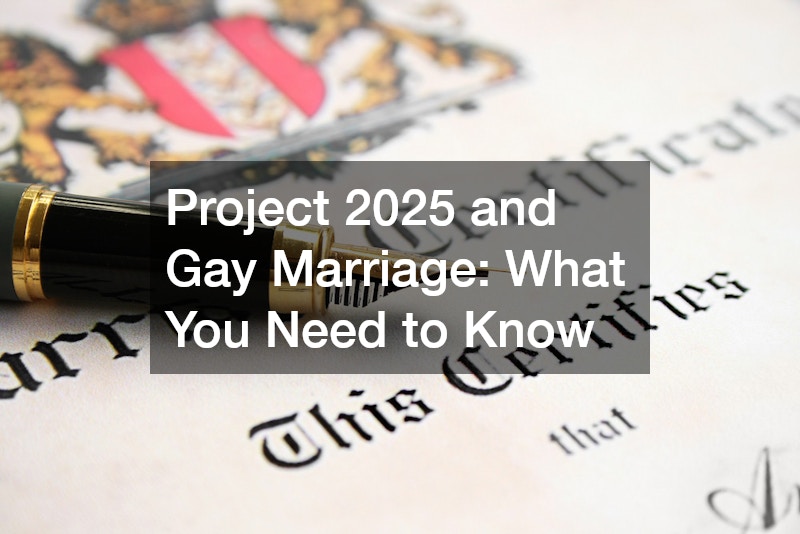
The issue of marriage equality has been a significant milestone in the ongoing quest for LGBTQ+ rights in the United States. Since the landmark Supreme Court decision in Obergefell v. Hodges nearly a decade ago, same-sex marriage has been recognized as a constitutional right. However, recent developments have sparked discussions about potential shifts in policy that could impact this hard-won victory. In this context, consulting with an LGBT family law attorney has become increasingly important for those seeking to protect their rights amid these potential changes.
One of the focal points of these discussions is Project 2025, an initiative spearheaded by the Heritage Foundation. This plan, designed to transform government policies in favor of conservative social ideals, has generated substantial debate regarding its stance on LGBTQ+ issues.
To understand the implications of Project 2025, it’s essential to explore its proposals and how they might affect marriage equality.
Understanding Project 2025
Project 2025 is outlined in a comprehensive book titled “Mandate for Leadership,” which details the conservative agenda for reshaping federal policies. While the plan does not explicitly propose the elimination of same-sex marriage, it includes several measures that could impact LGBTQ+ rights indirectly.
Key Proposals Affecting LGBTQ+ Rights
Funding for Relationship Counseling
One notable aspect of Project 2025 is its approach to funding relationship counseling programs. The proposal suggests that federal grants for healthy marriage and relationship education should be directed exclusively to organizations that promote heterosexual relationships. This proposal could marginalize LGBTQ+ couples by limiting access to valuable relationship resources and support that are inclusive of all sexual orientations.
Restrictions on Sex Discrimination Protections
Project 2025 also includes recommendations to narrow the application of sex discrimination protections for LGBTQ+ individuals. This could lead to a reduction in legal safeguards against discrimination in various sectors, such as employment and housing, potentially exposing LGBTQ+ individuals to increased vulnerability and unequal treatment.
Religious Freedom vs. LGBTQ+ Rights
Another significant proposal involves prioritizing religious freedom over LGBTQ+ rights in legal contexts. Under this plan, the Department of Justice would be tasked with defending religious freedom claims that could potentially override the rights of LGBTQ+ individuals. This approach could lead to legal challenges where religious beliefs are used as a basis for opposing LGBTQ+ rights, affecting the ability of LGBTQ+ individuals to seek justice and equality.
Rollback of Federal LGBTQ+ Equity Programs
Project 2025 also envisions rolling back several federal LGBTQ+ equity programs. These programs have played a crucial role in advancing equality and providing resources for LGBTQ+ individuals. Reducing or eliminating these programs could significantly impact the progress made toward LGBTQ+ inclusion and support at the federal level.
Impact on Same-Sex Marriage
While Project 2025 does not directly target the legality of same-sex marriage, its proposed policies could undermine the broader framework of LGBTQ+ rights and protections established by the Obergefell decision. By favoring heterosexual relationships, limiting discrimination protections, and rolling back equity programs, the initiative could create an environment where same-sex marriage and LGBTQ+ rights are less supported and protected.
The Bottom Line
Project 2025 represents a significant shift in conservative policy aims, particularly concerning LGBTQ+ rights. Although it does not propose outright eliminating same-sex marriage, its recommendations could weaken the protections and support systems that ensure equality for LGBTQ+ individuals. The implications of these proposed changes are substantial, as they could affect everything from access to relationship counseling to legal protections and federal support programs.
As discussions around Project 2025 continue, it remains crucial to monitor how these policies might influence LGBTQ+ rights and marriage equality. Understanding these potential impacts is essential for advocating for continued progress and protecting the rights that have been fought for over the years.
.

